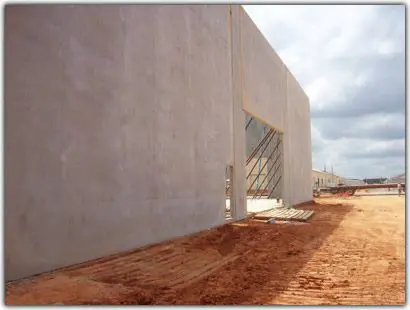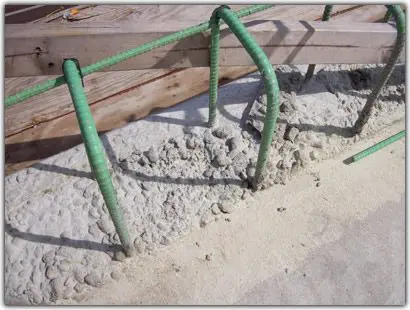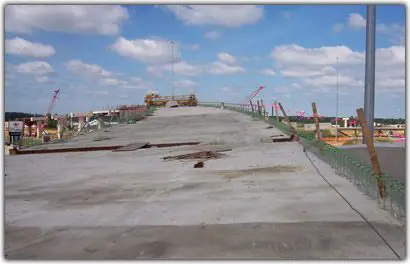"Do You Know The Facts?"
Concrete is Non-combustible.
Concrete is the most fire-resistant building material. It does not burn and does not emit any toxic fumes, smoke or drip molten particles when exposed to fire.
Concrete is efficient. Its excellent thermal mass reduces energy consumption in commercial and residential buildings, which can be reduced by up to 50%.

Approximately 60% of the 50,000 miles of the U.S. Interstate highway system were built of concrete. Concrete was selected because of its superior durability, safety, higher reflection of light at night, and greater traction during inclement weather.
Concrete can support the heaviest loads, such as semi traffic and the increasingly larger jumbo jets. There is less deformation than asphalt, and although the initial cost of concrete can be higher than asphalt, concrete usually has a useful life that is twice that of asphalt.
Concrete pavement consistently serves 20–30 years without needing major repair. Asphalt generally lasts 8–12 years before needing resurfacing or more significant repairs.
Concrete has a life span of 90 minutes. Once mixed, it has 90 minutes to reach its destination before hardening.
A ten-year survey that concluded in the mid '80s determined that over 2,000 miles of city streets in Kansas revealed that asphalt pavement was nine times as expensive to maintain as concrete.

Because of its light color, concrete reflects 33-50% lighter than asphalt. By using more heat-reflecting concrete instead of asphalt, Atlanta, Georgia officials lowered their average city temperature by six degrees!
America's first concrete street was built in 1891 in Bellefontaine, Ohio. It is still in service today.
Concrete is one of the most versatile, durable and cost-effective building materials known to man. It is also environmentally sustainable, with green credentials that outperform both steel and timber.
Concrete can create any shape or size home that can be imagined.
A concrete home is a solid investment for a family in terms of both value and safety.
A concrete home can keep you comfortable year-round while reducing utility bills.
Concrete homes require far less maintenance to keep it looking new.
By building concrete homes, forests are preserved. With high wood prices, logging's escalating environmental cost, and a growing shortage of high-quality lumber, concrete offers a variety of products and construction techniques to provide cost-effective, quality alternatives to wood-frame home construction.

Concrete homes prove to be convenient by providing quietness and comfortability. Therefore, a concrete home is a solid investment in your lifestyle.
Concrete information is provided courtesy of the Arkansas Ready Mixed Concrete Association®.
Questions About Concrete?
We have the answers!
Visit these websites for helpful information regarding concrete.










